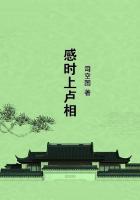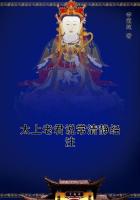Lee's conception of the part--His influence exerted toward the restoration of Virginia--He visits old friends throughout the country--Receives offers of positions--Compares notes with the Union General Hunter--Longs for a country home--Finds one at "Derwent," near Cartersville My father remained quietly in Richmond with my mother and sisters.
He was now a private citizen for the first time in his life. As he had always been a good soldier, so now he became a good citizen. My father's advice to all his old officers and men was to submit to the authority of the land and to stay at home, now that their native States needed them more than ever. His advice and example had great influence with all. In a letter to Colonel Walter Taylor [his old A. A. G.], he speaks on this point:
"...I am sorry to hear that our returned soldiers cannot obtain employment. Tell them they must all set to work, and if they cannot do what they prefer, do what they can. Virginia wants all their aid, all their support, and the presence of all her sons to sustain and recuperate her. They must therefore put themselves in a position to take part in her government, and not be deterred by obstacles in their way. There is much to be done which they only can do...."
And in a letter, a month later, to an officer asking his opinion about a decree of the Emperor of Mexico encouraging the emigration from the South to that country:
"...I do not know how far their emigration to another land will conduce to their prosperity. Although prospects may not now be cheering, I have entertained the opinion that, unless prevented by circumstances or necessity, it would be better for them and the country if they remained at their homes and shared the fate of their respective States...."
Again, in a letter to Governor Letcher [the "War Governor" of Virginia]:
"...The duty of its citizens, then, appears to me too plain to admit of doubt. All should unite in honest efforts to obliterate the effects of the war and to restore the blessing of peace. They should remain, if possible, in the country; promote harmony and good feeling, qualify themselves to vote and elect to the State and general legislatures wise and patriotic men, who will devote their abilities to the interests of the country and the healing of all dissensions. I have invariably recommended this course since the cessation of hostilities, and have endeavoured to practise it myself...."
Also in a letter of still later date, to Captain Josiah Tatnall, of the Confederate States Navy, he thus emphasises the same sentiment:
"...I believe it to be the duty of every one to unite in the restoration of the country and the reestablishment of peace and harmony. These considerations governed be in the counsels I gave to others, and induced me on the 13th of June to make application to be included in the terms of the amnesty proclamation...."
These letters and many more show plainly his conception of what was right for all to do at this time. I have heard him repeatedly give similar advice to relatives and friends and to strangers who sought it. The following letters to General Grant and to President Johnson show how he gave to the people of the South an example of quiet submission to the government of the country:
"Richmond, Virginia, June 13, 1865.
"Lieutenant-General U. S. Grant, Commanding the "Armies of the United States.
"General: Upon reading the President's proclamation of the 29th ult., I came to Richmond to ascertain what was proper or required of me to do, when I learned that, with others, the was to be indicted for treason by the grand jury at Norfolk. I had supposed that the officers and men of the Army of Northern Virginia were, by the terms of their surrender, protected by the United States Government from molestation so long as they conformed to its conditions. I am ready to meet any charges that may be preferred against me, and do not wish to avoid trail; but, if I am correct as to the protection granted by my parole, and am not to be prosecuted, I desire to comply with the provision of the President's proclamation, and, therefore, inclose the required application, which I request, in that event, may be acted on. I am with great respect, "Your obedient servant, R. E. Lee."
"Richmond, Virginia, June 13, 1865.
"His Excellency Andrew Johnson, President of the United States.
"Sir: Being excluded from the provisions of the amnesty and pardon contained in the proclamation of the 29th ult., I hereby apply for the benefits and full restoration of all rights as privileges extended to those included in its terms. I graduated at the Military Academy at West Point in June, 1829; resigned from the United States Army, April, 1861; was a general in the Confederate Army, and included in the surrender of the Army of Northern Virginia, April 9, 1865. I have the honour to be, very respectfully, "Your obedient servant, R. E. Lee."
Of this latter letter, my brother, Custis Lee, writes me:
"When General Lee requested me to make a copy of this letter, he remarked it was but right for him to set an example of making a formal submission to the civil authorities, and that he thought, by do doing, he might possibly be in a better position to be of use to the Confederates who were not protected by military paroles, especially Mr. Davis"
Colonel Charles Marshall [a grandson of Chief Justice Marshall, and Lee's military secretary] says:
"...He (General Lee) set to work to use his great influence to reconcile the people of the South to the hard consequences of their defeat, to inspire them with hope, to lead them to accept, freely and frankly, the government that had been established by the result of the war, and thus relieve them from the military rule.... The advice and example of General Lee did more to incline the scale in favour of a frank and manly adoption of that course of conduct which tended to the restoration of peace and harmony than all the Federal garrisons in all the military districts."















